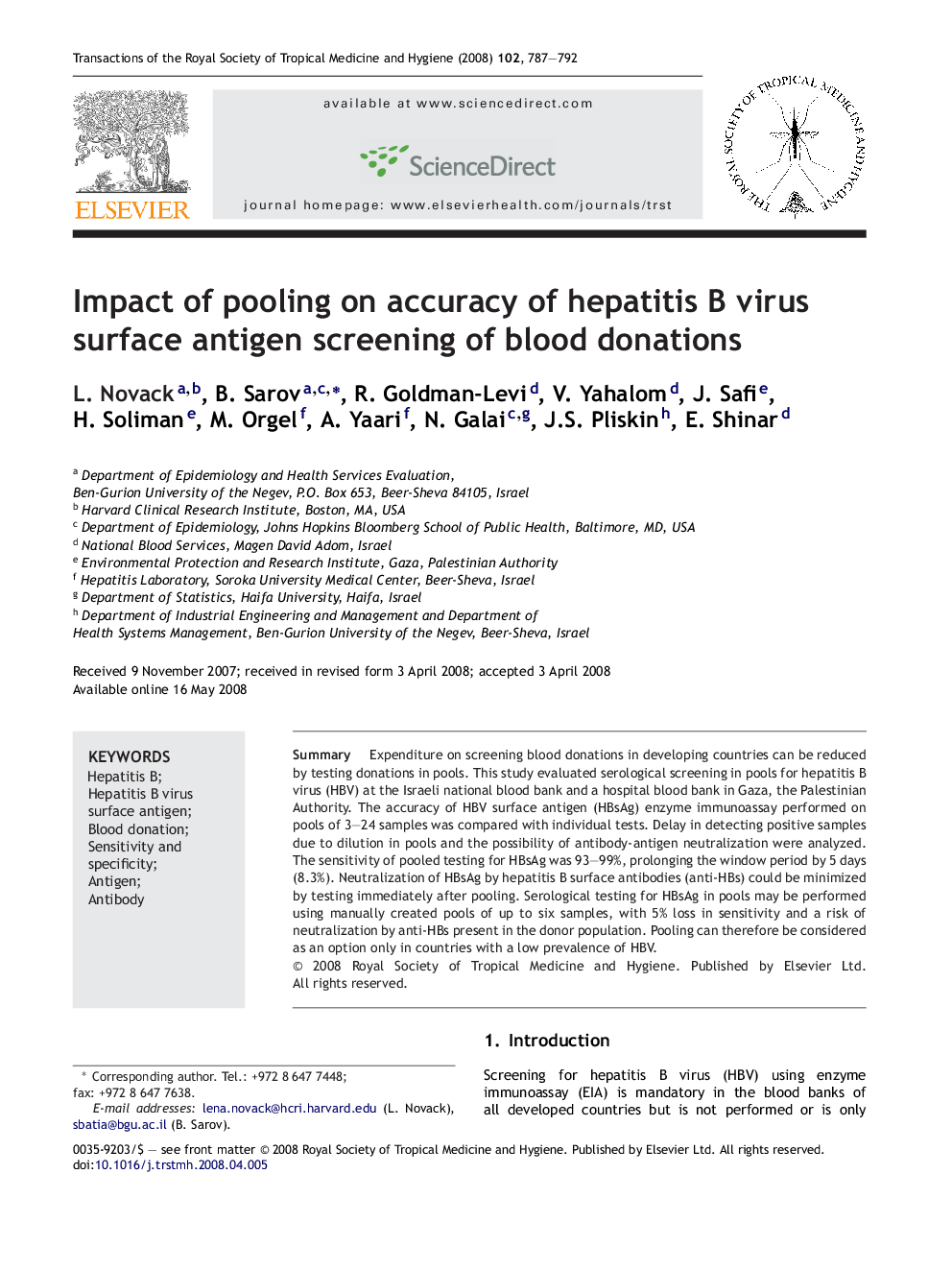| Article ID | Journal | Published Year | Pages | File Type |
|---|---|---|---|---|
| 3420792 | Transactions of the Royal Society of Tropical Medicine and Hygiene | 2008 | 6 Pages |
Abstract
Expenditure on screening blood donations in developing countries can be reduced by testing donations in pools. This study evaluated serological screening in pools for hepatitis B virus (HBV) at the Israeli national blood bank and a hospital blood bank in Gaza, the Palestinian Authority. The accuracy of HBV surface antigen (HBsAg) enzyme immunoassay performed on pools of 3-24 samples was compared with individual tests. Delay in detecting positive samples due to dilution in pools and the possibility of antibody-antigen neutralization were analyzed. The sensitivity of pooled testing for HBsAg was 93-99%, prolonging the window period by 5 days (8.3%). Neutralization of HBsAg by hepatitis B surface antibodies (anti-HBs) could be minimized by testing immediately after pooling. Serological testing for HBsAg in pools may be performed using manually created pools of up to six samples, with 5% loss in sensitivity and a risk of neutralization by anti-HBs present in the donor population. Pooling can therefore be considered as an option only in countries with a low prevalence of HBV.
Keywords
Related Topics
Life Sciences
Immunology and Microbiology
Applied Microbiology and Biotechnology
Authors
L. Novack, B. Sarov, R. Goldman-Levi, V. Yahalom, J. Safi, H. Soliman, M. Orgel, A. Yaari, N. Galai, J.S. Pliskin, E. Shinar,
